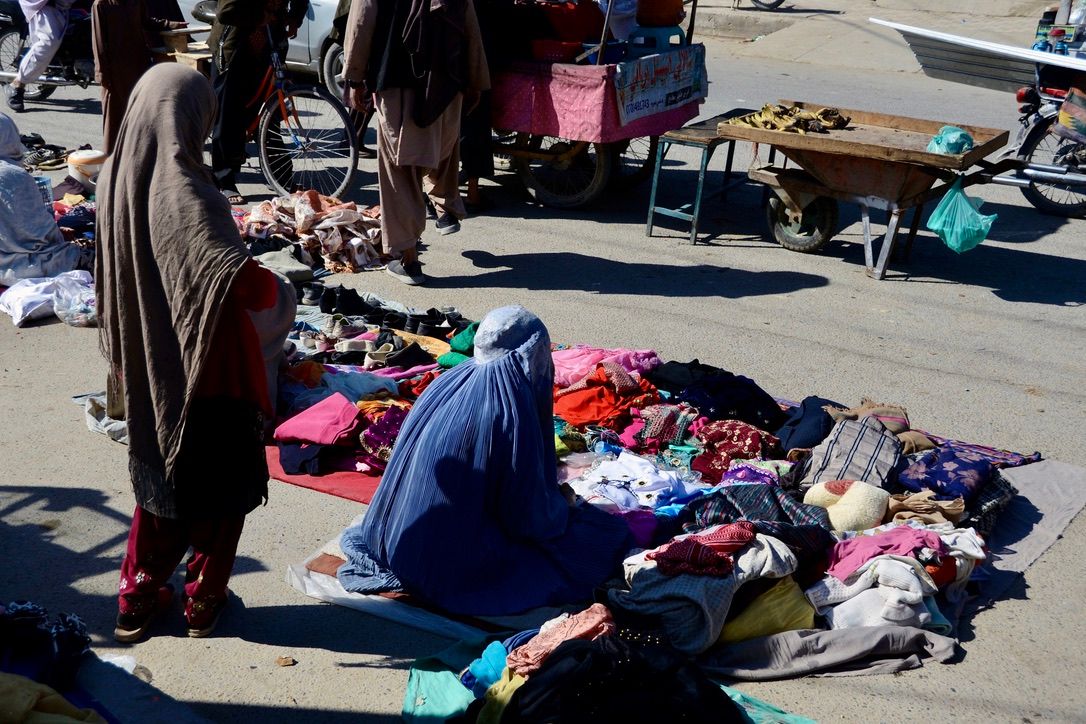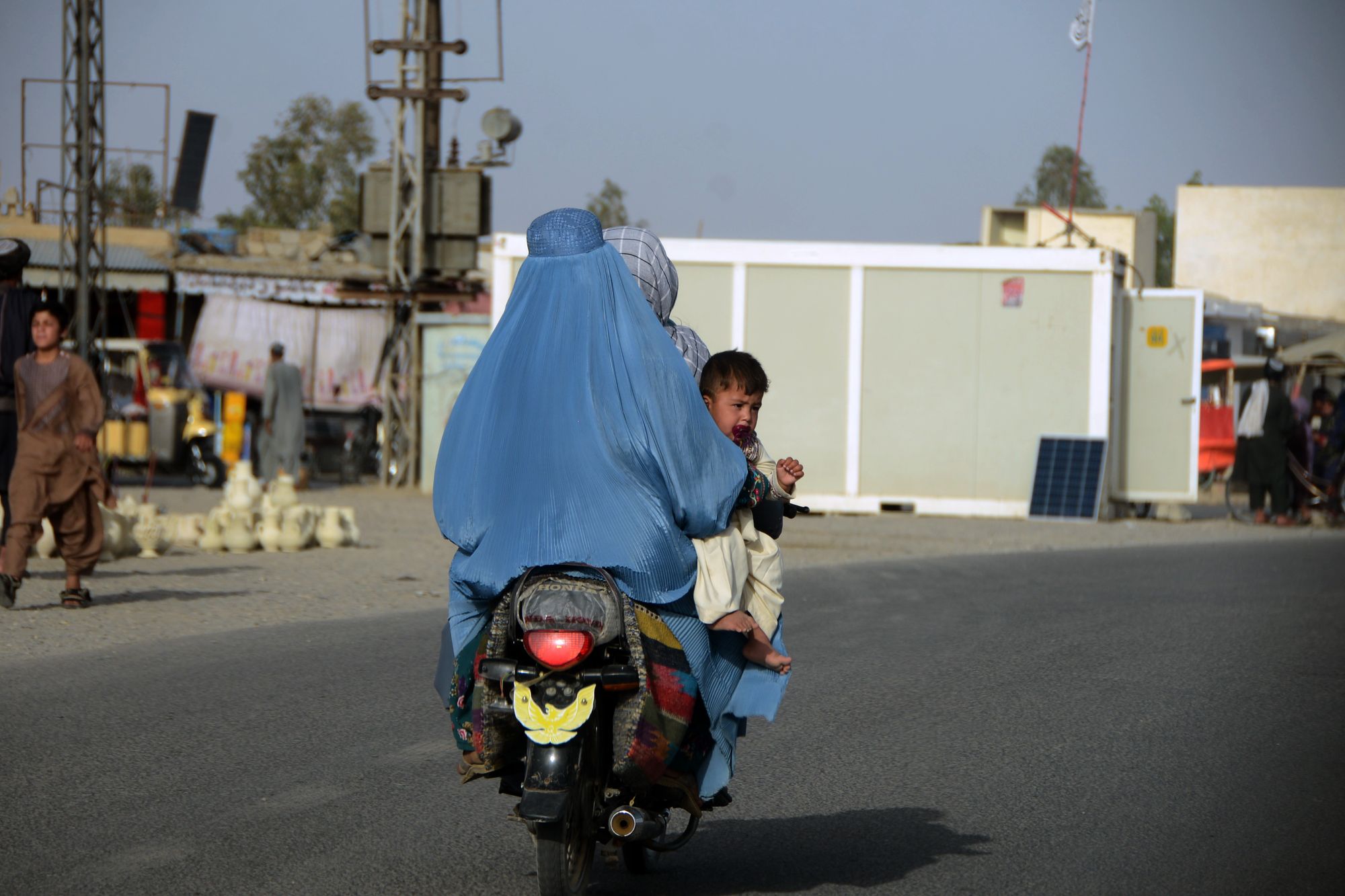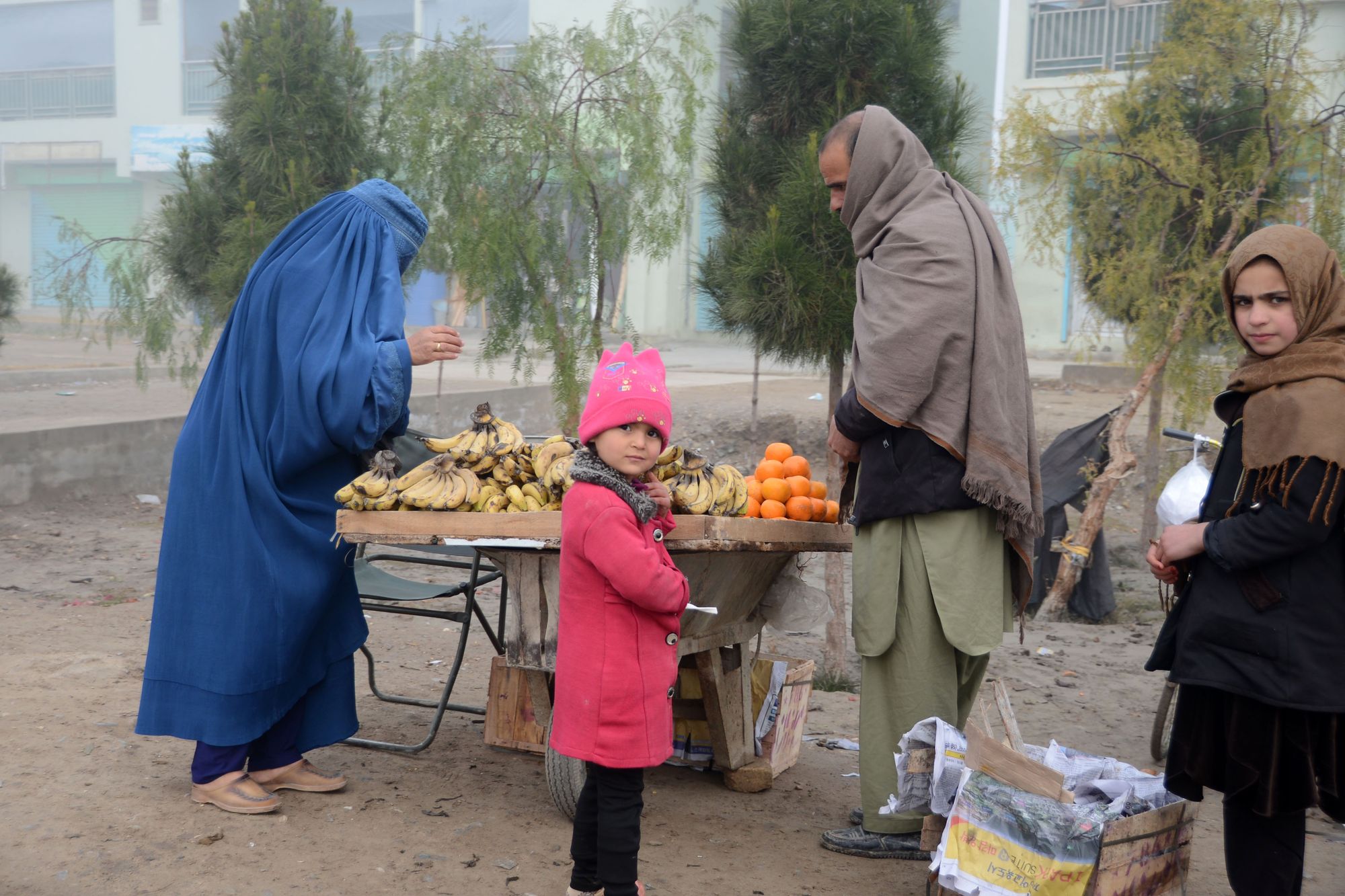Kandahari Women: No to Forced Hijab
Afghan women in southern Kandahar want the Taliban to recognize and understand that Hijab, which has been part of the Afghan culture & Islamic rule for centuries, is not more important than preventing millions of Afghans from dying of starvation.

Reporter’s name held for safety, edited by Mohammad J. Alizada, & Brian J. Conley
Alive-in is a not-for-profit media agency that mentors journalists from underrepresented communities to increase local and international understanding. Subscribe to receive our stories directly in your inbox.
If you are able to support our work financially, please click the button below.
KANDAHAR — The women of Afghanistan’s southern Kandahar province wear blue and black hijabs when leaving their homes and have for a long time, following the conservative traditions that have been the norm in the province for millenia. However, they also think the Taliban are curtailing the real issues facing the Afghan public by focusing on women and increasing restrictions against the gender.
46 year-old Shaghla who is wearing a blue burqa sells second-hand clothes and shoes on the side of the street in Kandahar city’s second district. Shaghla says, “It was imperative for the Taliban to save women from the clutches of hunger and poverty who are now begging on city streets instead of imposing hijab.”
A UN Development Program (UNDP) study published in September of last year said as much as 97 percent of the Afghan population is at risk of sinking below the poverty line by the middle of 2022. Although it is now June 2022, AiA found no additional reporting from UNDP.
Shaghla is the head of a family of 13 whose husband was killed in a roadside bomb blast laid by the Taliban in Shahwali Kot distirct some five years ago.
“There are no male members of the family save for my 15 year-old son,” Shaghla told Alive in Afghanistan.
The Taliban’s priorities has been under a lot of scrutiny, especially its insistence on women covering up since their victory in Afghanistan in August of 2021. The Taliban’s latest decree ordered women to cover their faces in public, and directed taxis, rickshaw drivers and buses to avoid picking up women who are not accompanied by a male guardian.
These decrees by the Taliban further restrict women, especially those without any male guardians and who are the breadwinners of their families, from taking care of their families.
“Find a way to kill us all instead of all these nonsensical orders,” Shaghla said, clearly frustrated, adding that there was no need for compulsory hijab as everyone was following Islamic rules before the Taliban took control of Afghanistan.

Another Kandahar resident, who spoke to Alive in Afghanistan on the condition of anonymity, criticized the Taliban for forgetting the needs and priorities of the people and focusing on small issues instead. She emphasized that the Afghan public follows Islamic and cultural values without the need for it to be compulsory.
“People turn away from whatever is forced upon them. The Taliban should not try to make Afghan women hate hijab,” the resident said.
Arzoo Anwari, a women’s rights activist originating from Kandahar who currently lives in the United States thinks the Taliban have not changed within the last twenty years.
Ms. Anwari says, “Afghan women are human beings who have the human right to choose, and not to accept forced hijab. Compulsory hijab is violating human rights. We will never allow anyone to tamper with our choice of wearing a hijab!”
Dr. Fahima Rahmati, a civil rights activist in Kandahar also considers the Taliban ordering women to wear hijab a violation of women’s rights and emphasizes that Afghan women should not be deprived of their rights.
“My message to the Taliban is this; you may be the Taliban of 20 years ago, but we are no longer the women of that era, stop imposing more restrictions on Afghan women!” Ms. Rahmati said.
A religious scholar who spoke to Alive in Afghanistan on the condition of anonymity believes the Taliban’s orders do not have any basis in Islam or the holy Quran.
“If the Quran is the foundation for the decrees, the issue of dressing is associated with freedom. Even the Quran doesn’t mention anything about covering the head, hands and feet of women. Laying down laws and punishments for those not abiding by these rules has no Quranic basis,” the scholar said.
The scholar said such decisions and decrees are largely political in nature and the Taliban often use them as a tool to influence society and suppress social action against them.
Although Alive in Afghanistan tried to reach the Taliban for a comment, they did not respond.

Alive-in is a not-for-profit media agency that mentors journalists from underrepresented communities to increase local and international understanding. Subscribe to receive our stories directly in your inbox.
If you are able to support our work financially, please click the button below.
